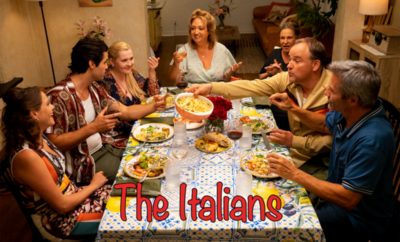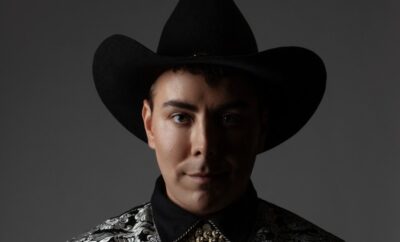Features
#TeenChoiceSoStraight: Fans React to 2016 Teen Choice Awards Nominees
By: Katherine Trammell
When Oscar nominees were announced on January 14 this year, it immediately became clear that something was amiss. For the second year in a row, not a single nominee was a person of color. Outrage over this trend spilled onto the Internet with many fans using the hashtag #OscarsSoWhite to voice their dismay and anger.
A similar controversy played out on Twitter yesterday when this year’s Teen Choice Awards nominees were announced. While the categories weren’t completely devoid of “diversity” — that catch-all word of inclusiveness that waters down any real identifiable representation — something was again missing from the list of nominees. Despite teenage fans embracing and championing couples like Lexa and Clarke (The 100) and Magnus and Alec (Shadowhunters), none of TV’s popular same-sex pairings (canonical or not) had been recognized in any of the categories. Fans immediately began voicing their disapproval by using the hashtag #TeenChoiceSoStraight until it trended.
It wasn’t what was missing from one particular category that proved to be the only issue fans had with the list of nominees – it was what had been included that shocked fans the most. When fans saw that Eliza Clarke and Bob Morley had been nominated to the “Choice TV: Chemistry” category instead of Eliza Taylor and Alycia Debnam-Carey, outrage ensued for two very important reasons.
First, at the heart of the social media maelstrom was a general weariness over a lack of LGBT recognition and representation in entertainment. Given the unrelenting resurgence of the “Bury Your Gays” trope this year, (which erases via death queer representation from TV screens) queer fans have been left with very little acknowledgement that they are important enough to exist in the world of entertainment. It’s this failure to be recognized becomes even more insulting when the characters who fell victim to the trope still aren’t important enough to be honored or recognized after death. Like the Oscars, when awards shows fail to recognize certain groups of people as outstanding, the worth of the audience they represent isn’t just devalued, it’s alienated too.
A presentation at SXSW on March 11, 2016 by the New York-based J. Walter Thompson Innovation Group explained findings in a survey that proved just how alienating this lack of recognition can be. Remarkably, this data from the survey showed that in a sample 1,000 members of “Generation Z” – people between the ages of 13 and 20 – 48% define themselves as “exclusively heterosexual.” This means that over half of the teens represented by this survey would be considered queer. The members of this sample were also more likely to disassociate themselves with traditional gender binaries than any other generation that came before it, including Millennials.
If this survey represents an accurate assessment of our current teenage viewing audience, then why aren’t they allowed to see a relationship that represents the way they love honored among list of nominees? Better yet, why isn’t TV representing them in proportion to their real life array of diversity?
The other issue fans had with the list of Teen Choice nominees goes back to the “Chemistry” category. Yes, fans were upset that Lexa and Clarke were left off this list, but they were more upset that Clarke and Bellamy had been put on it. While “chemistry” has never been synonymous with “romance” as far as this Teen Choice category goes, fans were upset by the implications that a canonical relationship acted by two women (whose every moment on screen together was undeniably electric) could be ignored for a relationship that, although equally well-acted, was platonic. And heterosexual. And traditional.
Although Teen Choice nominees are determined and chosen by fans who nominate them online using Twitter or the award show’s own website, some began to speculate that the nominee list was fixed for the purpose of remaining a “family friendly” show that caters to its predominantly teenage audience. Fans upset at this notion began demanding transparency. Some, like YouTuber Sofia Rojas, took the issue straight to the awards show itself tweeting, “@TeenChoiceFOX I dare you to show us the vote count for each ship nominated by fans; all of them,” while others agreed that an agenda must be to blame for a list of nominees that could exclude a relationship that dominated every other award category that it had been entered into.
Regardless of whether or not the list was fixed, the fear that this is even plausible represents a much greater problem: people fearing that a canonical same-sex relationship can be overshadowed by a platonic heterosexual one because it’s mere existence and recognition doesn’t make for appropriate “family” entertainment. That makes queer people feel that the way they love is somehow vilified. That seeing and honoring a fictional interpretation of their love is a toxic threat to family values.
This vilification slowly seeds itself. And like with any vocalized movement that comes from the voice of a people who feel they’ve been wronged, a backlash to the #TeenChoiceSoStraight controversy escalated quickly with some fans opposed to the outrage threatening to slit the throats of the more prominent voices within the movement. This is what happens when we fail to recognize all forms of love. This is what happens when we not only bury our gays, but invalidate they ever existed by refusing to honor the actors and actresses who once brought them to life. This is the kind of hate and fear that teens suffer through every day because the one medium that has the power to reduce that fear by exposing families to people like them refuses to do so.
The controversy created by this year’s Teen Choice nominee list isn’t about which ship is better than the other. To be fair, all nominees are deserving of their nominations and we congratulate them all for being nominated. But when the queer half of Generation Z doesn’t get the chance to see themselves honored in an awards show made to reflect their voices, it becomes apparent that a fundamental flaw exists somewhere in the fold of teenage entertainment.
To use a hackneyed cliché, children are our future and until networks begin to accept this as truth and create and honor characters in film and TV that represent their beautiful diversity, teens will take their patronage somewhere else. Like with the Oscars, a boycott of the Teen Choice Awards has already begun and while it will not receive the same scope of attention that the Oscars controversy and boycott received, the goal is that networks like Fox “hear the outcry” of fans nonetheless (Ben Batemen). Because the thing is, when thousands of voices scream for change across social media, it’s hard to ignore their existence and queer kids are finished with being invisible.





You must be logged in to post a comment Login